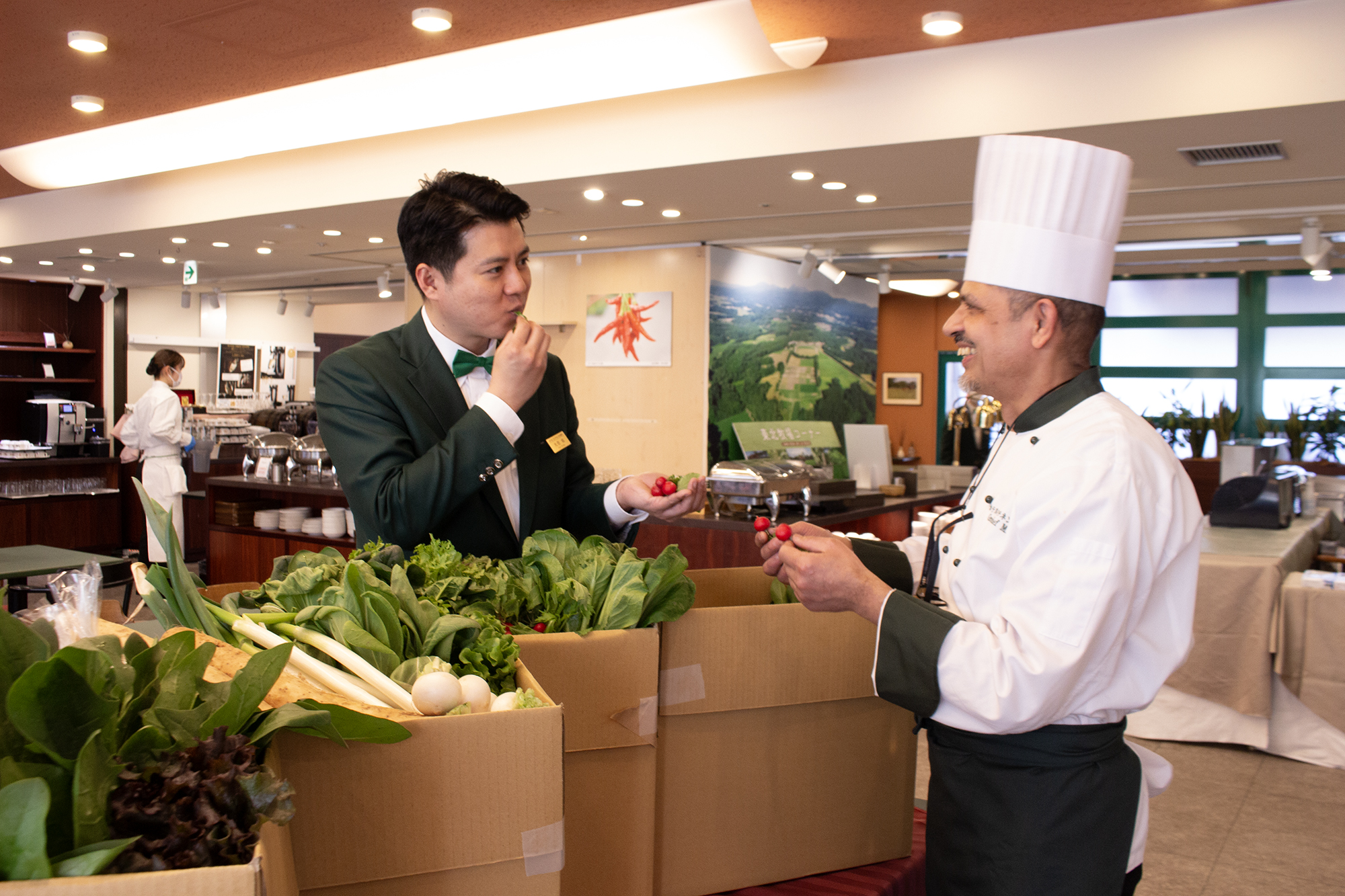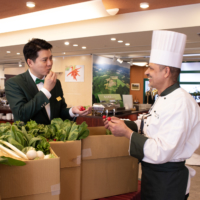Hotel Continental Fuchu, which owns the Tohoku Bokujo Ranch in Aomori Prefecture, creates many opportunities for its guests to experience the rich nature and contrasting seasons of the Tohoku Region alongside the food it serves.
Every Monday and Thursday, fresh vegetables, fruits and eggs are delivered from the farm, which grows the crops organically, to the hotel. On these days, the company invites hotel and restaurant guests to watch the unpacking of the 10 to 30 boxes.
“We also give them small pieces of freshly picked vegetables to taste, while selling others for them to take home. When wildflowers from the farm are included in the delivery, we display them in vases in various places in the hotel, but also give them away to some of our guests,” General Manager Yu Osumi said.
“We want our guests to feel satisfied, so we produce everything to our standards, including the ingredients for creating delicious food. This is the essence of hospitality,” Osumi said. “Everyone who participated seemed to have enjoyed the unique experience,” he said, noting that there have been more participants than expected.
Key employees of the hotel visit the farm as often as possible to bring back seasonal stories and information to share with guests. In particular, executive chef Meghanath Aryal is at the farm every month for multiple reasons. For example, he often talks with the staff about how best to utilize the farmland, and checks on the growth of the crops. “Some ingredients are used a lot, others less. For example, one serving of curry uses one onion, so we need a lot of land,” Aryal said.
Crops used less are allocated smaller spaces. These adjustments are made frequently to avoid food loss and to make the best use of the limited farming space. Of the ranch’s 100-hectare breadth, only 10 hectares can be cultivated because the rest is used for other purposes, such as pastures for thoroughbreds, which produce good manure to fertilize the crops, and the henhouse for producing its highly praised eggs.
To further reduce waste, Aryal said nothing edible is spared.
“We use parts of vegetables that would normally be thrown away. Spinach roots are used for makanai (meals given to restaurant workers), and the green tops of leeks are good for making soup stock,” he said, adding that he cooks for the ranch staff whenever he’s there.
“We also send them pictures of the dishes served at our restaurants and feedback from the customers,” Osumi added.
Kazuki Kashiwazaki, head of the Tohoku Bokujo Ranch, said he prints the pictures and puts them on the wall next to the office entrance. “These interactions motivate the staff,” he said.
This warm relationship between the hotel and the ranch is one of the sources of the unique hospitality guests receive at the hotel — an experience that other inns can’t offer.




